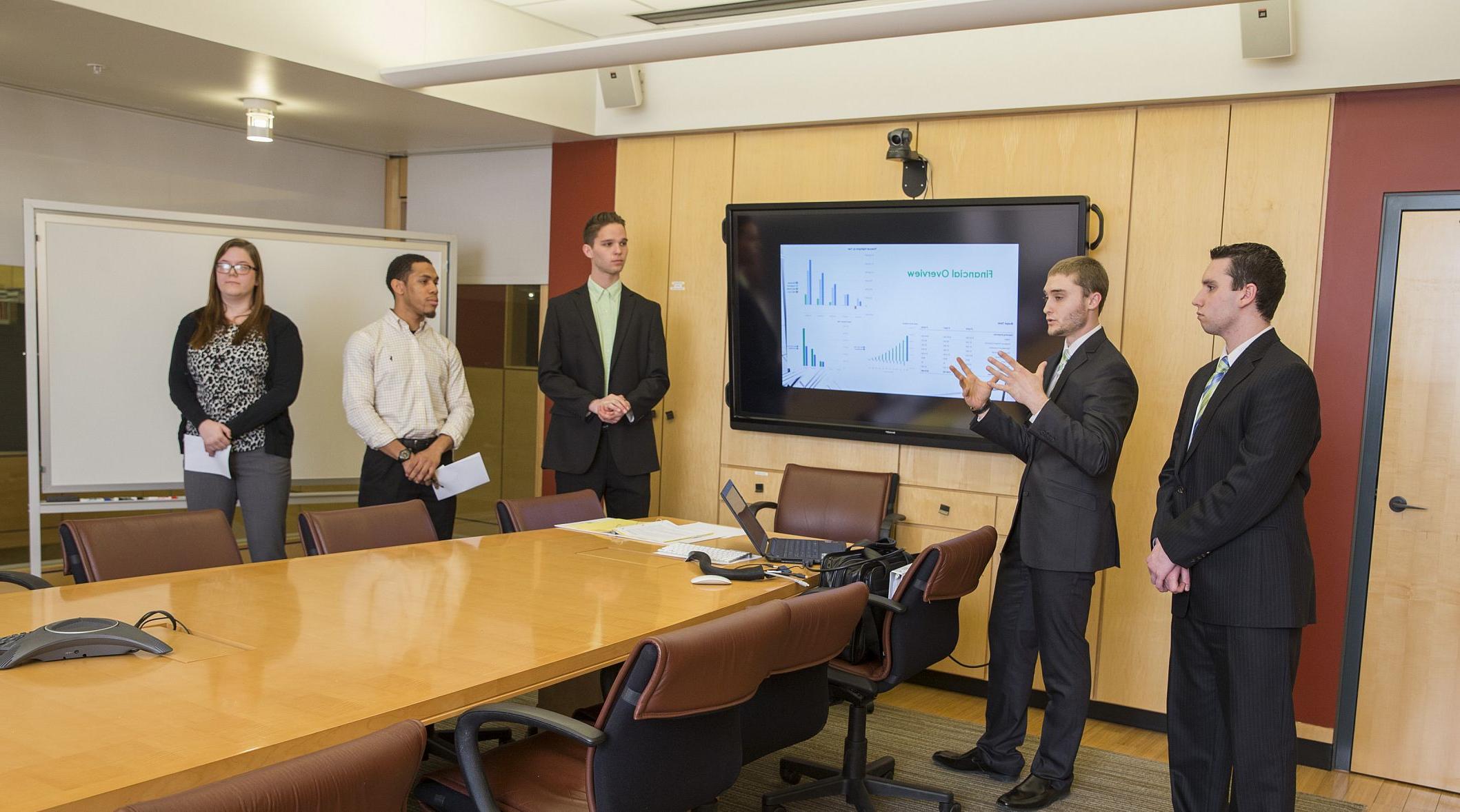Finance Course Descriptions
Scroll down to read descriptions of the finance courses offered at Carthage, or click on these links for additional resources:
Microsoft Excel for Basic Business Applications (QR)
FIN 2100 / 2 credits
This course is for students from all majors who wish to attain proficiency in using Microsoft Excel for basic business applications. Students will learn the basic functionalities of Excel, including working with workbooks, worksheets, organizing and analyzing data, creating tables and charts to transform data into meaningful and useful information, and building models to solve practical problems. Integrated into the learning of Excel will be the review of foundational mathematical and statistical concepts. An additional fee is required for the Microsoft Office Specialist (MOS) Excel certification exam.
Offered in Fall/Spring
Intermediate Financial Modeling with MS Excel (QR)
FIN 3110 / 4 credits
This course focuses on creating financial models using Microsoft Excel to help solve common business problems. It covers the entire problem-solving process - problem identification, identifying data needs, model design, model construction, and model implementation. The model building process will address issues related to user interface, built-in error checking mechanisms, computational efficiency and effective reporting both on-screen and in print. Models which students will learn how to build will include loan amortization, discounted cash flow valuation, capital expenditure budgeting, entegrated financial statements, portfolio optimization, and Monte Carlo simulation models.
Prerequisites: FIN 2100 or ACC 3250
Offered in Spring
Money and Banking (SOC) (SI)
FIN 3200 / 4 credits
A survey of the financial sector of the economy covering the role and functions of money and other financial instruments, commercial banks and financial intermediaries, the purposes of central banking and the structure and operations of the Federal Reserve, and the relationship between the monetary and credit system and the level of economic activity.
Prerequisite: ECN 1020 or ECN 1030
Offered in Fall/Spring
Corporate Finance (SI) (QR)
FIN 3210 / 4 credits
This course introduces students to the framework and methodology employed in financial decision-making with a focus on three areas. First is an introduction to the financial markets and both investment and financing instruments available to corporations, nonprofits, and individuals. Second is the analysis of financial statements and learning how that information is used to make decisions about the target capital structure for a firm and the dividend policy that would support that capital structure. In the third area, students will learn how to evaluate business projects (capital budgeting) using financial criteria and different financing choices (capital structure) for these projects.
Prerequisites: ACC 2010 and either BUS/ECN 2340, MGT 3100, MTH 1050, or MTH 3050
Offered in Fall/Spring
International Finance (SI) (ITL) (QR)
FIN 3290 / 4 credits
This course examines the monetary side of international economics and globalization, including the current and historical structure of international financial institutions. Topics include exchange rate theories, monetary regimes, interest rates, asset pricing, risk diversification, the balance of payments, currency crises, and open-economy aspects of fiscal and monetary policies. Emphasis is given to the use of theories in understanding current events and policy issues.
Prerequisites: ECN 1010 and 1020, or ECN 1030
Offered in Fall/Spring
Fixed Income and Derivatives
FIN 3500 / 4 credits
This course focuses on the fixed income and the derivative markets. Students will learn the features of various types of fixed income security, and their issuance, trading, risks, and valuation. The course covers the asset-backed securities based on various loan products. The derivative portion of the course introduces assets such as forwards, futures, options, and swaps. Students will learn the characteristics of them and the valuation through pricing models. Students will also learn to manage a portfolio of fixed income securities and derivatives.
Prerequisite: FIN 3210
Offered in Spring
Real Estate Analysis
FIN 3620 / 4 credits
Nearly everyone will own real estate in their lifetime. Whether you wish to learn how to buy and value a house or duplex, develop a commercial property, or be able to develop a commercial lending real estate proposal, this course will help by examining real estate found in the surrounding community through multiple lenses.
Trading the Financial Markets: Beyond the Theories and Myths (SI)
FIN 3800 / 4 credits
This course will introduce the students to the world of trading in the equity markets and their related equity options markets, as well as trading in the futures markets. The focus will be on markets that are available on the U.S. exchanges and through brokerages. Students will learn how to use the tools of technical and fundamental analysis. Students will gain proficiency in using a commercially available trading/investment platform with live data feeds, both for market analysis and simulation trade execution. Students will learn risk management techniques and how to develop a sound trade plan.
Security Analysis and Portfolio Management (QR)
FIN 4050 / 4 credits
In this course students employ modern portfolio theory to analyze securities using technical and fundamental analyses, for individual equity securities, and in the context of a diversified portfolio. Students will gain hands-on experience managing multimillion-dollar portfolios using live data feeds, and constructing interactive portfolio allocation models using Microsoft Excel.
Prerequisite: FIN 3210
Offered in Fall

